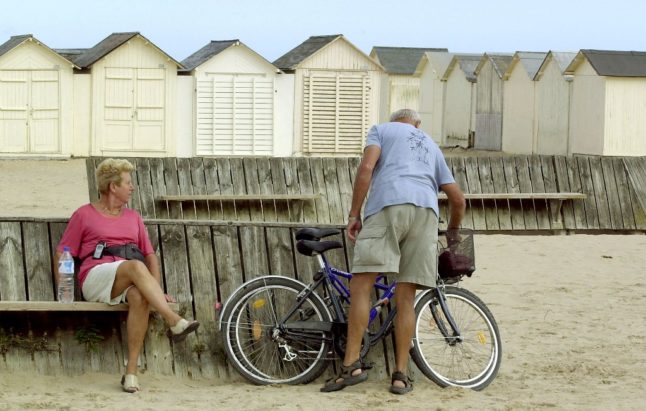Each month, when you receive your fiche de paie (pay slip), you probably notice a chunk being sent off for pension funds.
If you’ve been living in France for the past few years, you have probably noticed how this topic has become a hot-button issue. Perhaps, while in the midst of trying to follow the conversation around the possible ways pension plans could change, you might have found yourself asking the general question: how do French pensions even work?
Maybe you’re wondering how to calculate what your retirement will be, or when you can retire to begin with. If you have not spent your entire career working in France, it can be a bit confusing.
We’ve made French pension plans a bit easier to understand.
EXPLAINED: How your French pension works
The French language is known for being romantic, overflowing with a rich vocabulary. French has several of its own idioms and expressions that can be a bit obscure to non-native speakers, which we try to help you understand with our word of the day.
But what about the times when you’re looking to translate an English expression into French? It can be frustrating to feel like you can’t use the phrase that perfectly encapsulates what you want to say.
We’ve compiled a list of a few English sayings, along with their French counterparts, to help you have just the right words for moments like this!
‘Cup of tea’ to ‘grass is greener’: How to say English idioms in French
One of the things people tend to appreciate the most about the French is their approach to life – particularly their ability to slow down and have a full meal, drink a glass of wine, or just simply rest while on vacation or during the weekend. In some parts of France, particularly more rural areas, this means accepting that things might be fully closed down on Sundays.
To those not raised in France, it can be a bit of an adjustment to remember when the grocery stores closes on Sundays. Sunday openings can even be a bit confusing, as they tend to differ across France.
This weekend, while you wind down, read our article on why Sundays are the way they are in France.
Closed, open or restricted shopping: What’s the deal with Sunday opening in France?
Brexit has brought on a fair share of questions for British passport holders living in France. It’s safe to say there are more rules and regulations to remember now than there were before.
At one point, you might have thought driving on the other side of the road would be the trickiest part of having a British car in France. Now, however, British car owners are required to go through a rather complex process of making their vehicles compatible with French standards.
One British motorist went through this process, and has outlined the seven steps involved in getting French registration for your British car.
‘Be prepared to be patient’ – Registering your British car in France after Brexit
If you have not moved to France yet, but you’re thinking of taking the plunge, there are several things to think about before hand. You’ll want to consider several things, ranging from simpler questions of where to live all the way to how you’ll go about finding the right housing.
Even if you speak French solidly, there might still be some surprises awaiting you in the land of wine and cheese. To make sure you are fully prepared for your big move, we’ve compiled a list of things to do ahead of time.
À bientôt!
Checklist: 10 things to do before moving to France
Finally, living in France means you will inevitably hear a lot about French politics. Inevitably you’ll find some topics easier to understand than others, though a lot of people end up with the same questions.
In most countries with a parliamentary system, the Prime Minister is the one who is running the country, and their face would probably be among the most recognisable.
However, in France, this is not quite the case. We took some time to figure out what the role of Prime Minister really entails in France.



 Please whitelist us to continue reading.
Please whitelist us to continue reading.
Member comments